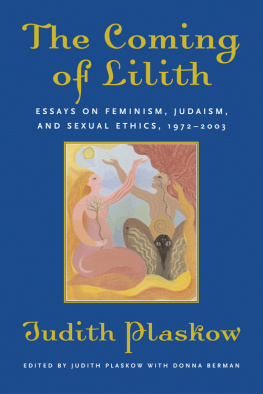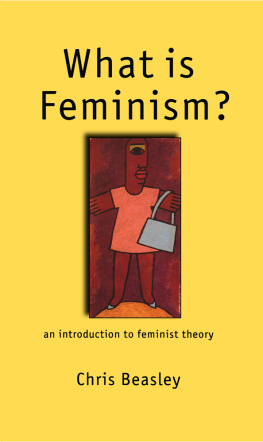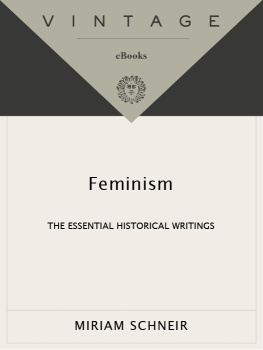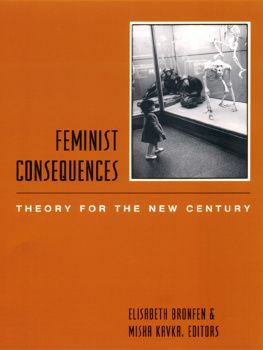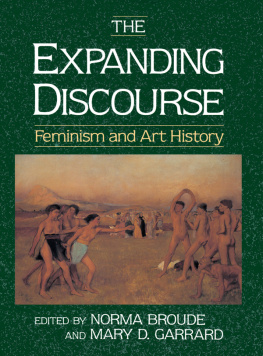
To Martha,
Who was there from the beginning
Foreword
I first met Judith Plaskow in the spring of 1989, when I interviewed her for a wonderful, now defunct, feminist newspaper called New Directions for Women. I had pestered the editors relentlessly until they agreed to let me do it. They told me outright that interviews were not their usual genre. I knew it would probably never get published (and it never did), but I didnt care. I had just wanted an excuse to talk with this woman who was changing the face of Judaism.
Since 1972, as a graduate student at Yale, Judith had been writing essays that were clear articulations of what had previously been amorphous rumblings, glimpses of truths that were hard to name and, more than that, difficult to admit. Judith continually laid bare the real issues, the hard questions, the rot under the veneer that requires full, often painful, excavation in order for true healing to take place. For many women longing for a Judaism that spoke to them, and more importantly, heard them, Judiths work evoked what she calls the yeah, yeah experience of connection, sisterhood, and hope.
As a young rabbi and burgeoning feminist, I had been deeply influenced by Judiths thought. She was among those who first opened my eyes to the fact that (as nave as it now sounds) womens entry into the rabbinate did not signal the end of Judaisms life-or-death struggle with patriarchy, but rather the beginning, and that Iand every woman rabbihad a vital role to play in that struggle.
From reconceptualizing the triad of Jewish thoughtGod, Torah, and Israelto exposing the very concrete impact of sexist God-language on womens lives, to making clear the connections between various forms of oppression, Judiths thought was a blueprint for a rabbinate that was a tool for change both within and beyond the Jewish community. For me, this meant that during my twelve years as rabbi of Port Jewish Center in Port Washington, New York, I felt empowered, indeed compelled, to constantly expose and speak out against what I saw as unjust in Jewish tradition. I wanted my congregants and my students to feel equally empowered and compelled to wrestle openly with their faith. I sought to ignite in them, as Judith had helped ignite in me, a burning passion for justice that would become a primary lens through which to view and evaluate both their secular and Jewish worlds. I bring this passion for justice to my current work as the director of the Charter Oak Cultural Center, a multicultural arts center in one of Hartford, Connecticuts poorest neighborhoods. My rabbinate has taken a different form as I continue to evolve as a Jewish feminist theologian.
But let me be blunt: Judiths work is not for the faint-hearted. She demands that we give up the safety of comfortable pretenses: the pretense of an objectivity that transcends our gender, race, socioeconomic location, and sexual orientation; the pretense that we have no presuppositions that determine which parts of a contradictory religious tradition we choose to pay attention to; the pretense that gay and lesbian rights are not ultimately about the dismantling of compulsory heterosexuality. Her work is hard-hitting, brutally honest, iconoclastic, and always rewarding and enlightening.
Mostly Judith complicates things. More accurately, she exposes the complexity we so assiduously attempt to avoid in our search for quick and easy answers and solutions. As early as 1973 she was cautioning us that there isnt one simple entity called womens experience. Womens experience is as diverse and varied and rich as the lives and histories of the real women it encompasses. To privilege and universalize some womens experience, Judith reminds us, is to echo one of the most tragic flaws of patriarchythe universalization of male experience. Moreover, Judith teaches us that just as womens experience cannot be neatly distilled, so Judaism cannot be thought of as one uniform belief system. In her articles on Christian anti-Judaism, she implores Christian feminists to resist the notion of a monolithic, normative Judaism that is entirely misogynist. Judaism, she stresses, is a complex, multivalent hodgepodge of a tradition with many competing strands, a tradition that must be seen in its entirety to be fairly judged. Can we learn to listen to each other in our complexity? she asks.
In these essays, Judith builds a powerful case for her contention that Jewish feminists will make limited progress in securing womens rights and in Judaism if we focus exclusively on changing halakhah (Jewish law). Not surprisingly, Judith believes that creating real change in Judaism is more complicated than that. It is, she argues, a matter of confronting the notion of the Otherness of women that undergirds Jewish law. She urges Jewish feminists to question the fundamental presuppositions of the legal system so that we may, to use her metaphor, not just get a piece of the Jewish pie but begin baking an entirely new one.
Judith also brings into relief what she calls the complexity of oppression, a reality that makes it possible, perhaps inescapable, for one to be both oppressed and oppressor. The fact that none of us is immune from being a victimizer just because we are or have been a victim is a sobering, important, and ultimately empowering truth if we are to see ourselves clearly and act with integrity. She writes, to be a Jew and not a Nazi is, in a sense, a moral privilege, but it guarantees nothing about who the Jew will be when s/he comes to power.
Most recently, it is to the issue of authority that Judith turns her attention. The Bible, she reminds us, was written and continues to be interpreted by people with particular biases. Bringing our unique perspectives to bear on what we encounter is unavoidable, but Judith insists that the criteria we use for picking and choosing among conflicting texts must be openly acknowledged, lest we make our own preferences seem Jewishly inevitable.
And, she argues, authority is key to the issue of gay and lesbian rights. The essential questions are not who is gay and why, but rather how, by whom, and for what purpose heterosexuality comes to be constructed and accepted as normative. She claims that these questions have the potential to begin a conversation that addresses the complexity of peoples lives... that might lead to a new understanding of the nature of eroticism and its relationship to the holy. Judith teaches us that gay rights, like womens rights in Judaism, are about far more than changing the law. Each demands nothing less than a rethinking of our world. This, of course, helps explain why opponents of gay marriage feel so deeply threatened by something so seemingly benign; it is not marriage, but a worldview and its power structure that they are defending.
For me, one of the most powerful elements of Judiths thought is her contention that we need to honestly confront and acknowledge that which difficult and painful to see in ourselves, in our tradition, and in God. If we do not confront the rejected parts of ourselves, we will almost inevitably project them onto those around us, seeing them and treating them as Other. If we do not confront the unjust aspects of our tradition, we will deprive ourselves of places to name and explore the contours and causes of our pain. If we do not confront the troubling aspects of our traditions depiction of God then, she argues, we are left with a theology that would close off huge areas of our [own] experience and declare them devoid of sacred power. These disturbing, humbling, powerful insights again serve to complicate things, bringing into focus the simplistic post-9/11 worldview of us versus them, good versus evil, in which we now find ourselves immersed.

